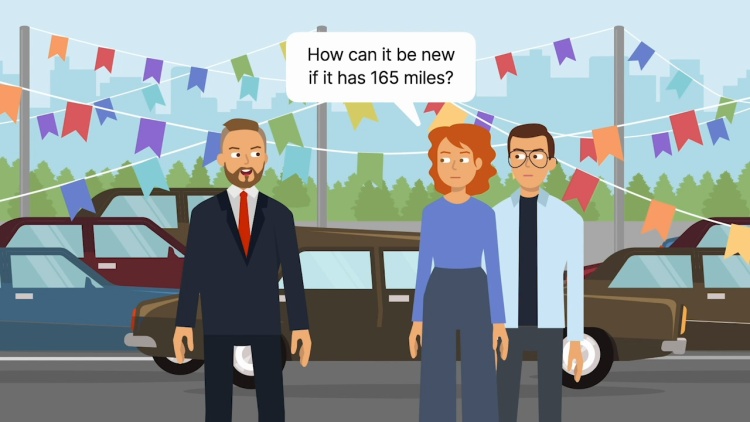Boise Dodge, Inc. v. Clark
Idaho Supreme Court
453 P.2d 551, 92 Idaho 902 (1969)
- Written by Megan Petersen, JD
Facts
Clark (defendant) purchased an automobile from Boise Dodge, Inc. (Boise) (plaintiff), a dealership. The odometer on the car showed 165 miles and was described by Boise’s salesman as “new.” In fact, however, the car was a “demonstrator” and Boise’s general manager knew that the odometer had been set back from 6,968 miles. To pay for the car, Clark traded in an old car worth $1,100 and issued checks for $500 and $1,562 for the balance of the purchase price. Clark later discovered that the car was actually “used” and stopped payment on the checks. Boise brought suit in Idaho state court against Clark to recover the value of the stopped checks ($2,062). Clark counterclaimed for damages for breach of contract and deceit, as well as punitive damages. The case was tried before a jury. The jury was instructed that it could award punitive damages to Clark, but that the award of punitive damages must bear a “reasonable relation” to any actual damages suffered by Clark. The jury awarded $2,062 in damages to Boise. The jury also awarded Clark $350, the difference between the value of the car as represented by Boise ($2,400) and the actual value of the car ($2,050). The jury also awarded Clark $12,500 in punitive damages. The award of punitive damages was affirmed by the appellate court, and Boise appealed.
Rule of Law
Issue
Holding and Reasoning (McQuade, J.)
What to do next…
Here's why 911,000 law students have relied on our case briefs:
- Written by law professors and practitioners, not other law students. 47,100 briefs, keyed to 997 casebooks. Top-notch customer support.
- The right amount of information, includes the facts, issues, rule of law, holding and reasoning, and any concurrences and dissents.
- Access in your classes, works on your mobile and tablet. Massive library of related video lessons and high quality multiple-choice questions.
- Easy to use, uniform format for every case brief. Written in plain English, not in legalese. Our briefs summarize and simplify; they don’t just repeat the court’s language.





